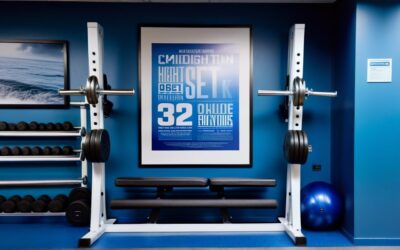First responders selflessly serve our communities, often working long and unpredictable shifts. While the nature of our work can be demanding, maintaining proper nutrition becomes even more crucial for us. A well-balanced diet not only supports our physical and mental well-being but also ensures we have the energy and stamina to respond effectively to emergencies, with a clear mind and appropriate emotional affect. In this blog post, we will explore essential nutrition tips tailored specifically for first responders working shift work.
6 TIPS TO MAINTAIN YOUR HEALTH ON SHIFT
1. Prioritize Regular Meals:
Shift work can disrupt the body’s natural circadian rhythm, making it challenging to maintain a regular eating schedule. However, prioritizing regular meals is vital for first responders. Plan and pack nutrient-rich meals and snacks in advance to avoid relying on fast food or vending machine options. Include a balance of protein, complex carbohydrates, and healthy fats in each meal to provide sustained energy throughout your shift.
2. Hydration is Key:
Staying hydrated (not with PRIME or Monsters!) is crucial for optimal performance during demanding shifts. As a first responder, it’s easy to overlook drinking enough water amidst a busy schedule. Aim to consume at least 8-10 glasses of water per day and keep a reusable water bottle within reach at all times. Avoid excessive caffeine or sugary drinks, as they can lead to dehydration and energy crashes.

3. Balance Macronutrients:
To sustain energy levels and support overall health, it’s essential to consume a balanced mix of macronutrients. Incorporate lean proteins (such as chicken, fish, beans, protein powder and tofu) to promote muscle repair and growth. Complex carbohydrates (whole grains, fruits, and vegetables) provide a steady release of energy. Additionally, include healthy fats (found in avocados, nuts, and olive oil) to support brain function and satiety.
4. Snack Smartly:
Working long shifts may lead to hunger between meals. Instead of relying on vending machine snacks, opt for nutritious alternatives. Keep a stash of healthy snacks like nuts, seeds, protein bars, fresh fruit, yogurt, or hummus and vegetables. These options provide sustained energy, prevent blood sugar spikes, and help you avoid unhealthy snacking choices.

5. Mindful Eating:
During busy shifts, it’s easy to consume meals quickly and mindlessly as you grab a quick minute between emergencies or tense situations. Practicing mindful eating can promote better digestion, satiety, and appreciation for the food you consume. When you can, try to take a few moments to sit down and savor your meals. Chew slowly, (try chewing each bite 20 times), pay attention to flavors and textures (what is it exactly you are tasting, can you pick out individual flavours in your bites), and listen to your body’s hunger and fullness cues.
6. Boost Micronutrients:
To support your immune system and overall well-being, focus on incorporating a variety of fruits and vegetables into your diet. These nutrient powerhouses are packed with vitamins, minerals, and antioxidants that combat the stress and physical demands of your work. Consider meal prepping or blending smoothies with a rainbow of colorful produce options to ensure you’re getting a wide range of essential micronutrients.

7. Adequate Rest and Recovery:
Proper nutrition goes hand in hand with sufficient rest and recovery. Despite the challenges of shift work, prioritize quality sleep and relaxation during your time off. Create a conducive sleep environment, try to establish a consistent bedtime routine, and limit exposure to stimulating electronic devices before bed. This will allow your body to recharge, repair, and optimize the benefits of a nutritious diet.
Prioritize Your Nutrition as a First Responder
As a first responder, your health and well-being are vital for serving your community effectively. By prioritizing proper nutrition, you can equip yourself with the energy, mental clarity, and resilience needed to face the challenges of shift work. Remember, a balanced diet, regular meals, hydration, and mindful eating practices will help you thrive and continue to be the best first responder you can be.
Need help with your nutrition? Blue Line Fitness Testing can guide you along the way with our integrated app! From meal plans to recipe ideas and macro tracking, we have it all right at your fingertips!







